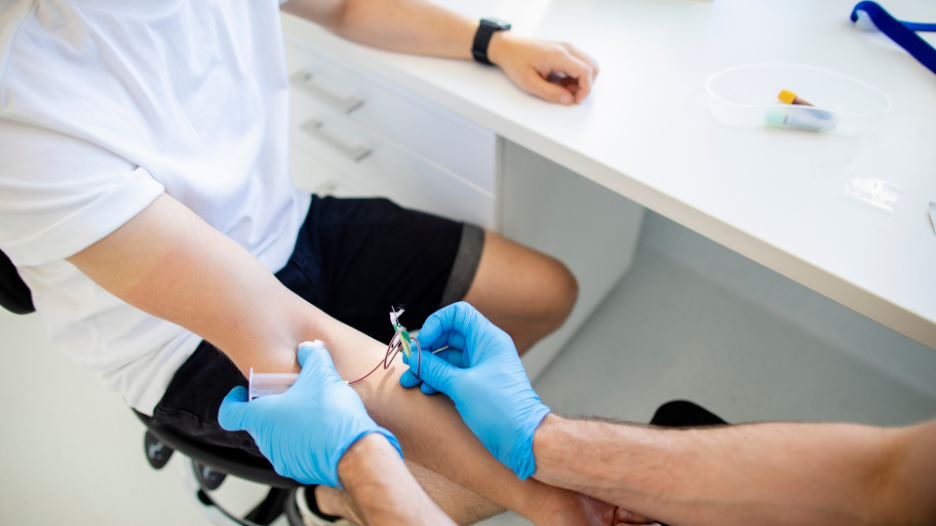
Blood collection procedures are essential for diagnostic and monitoring purposes in healthcare settings. However, for many patients, the experience can be distressing and anxiety-inducing. Addressing patient anxiety and discomfort during blood collection is crucial for ensuring a positive healthcare experience and promoting patient compliance with necessary medical procedures.
Recognizing the perspectives of both healthcare professionals and patients is crucial in optimizing the blood collection process. Healthcare professionals must balance the clinical necessity of obtaining blood samples with the patient's comfort and emotional well-being. On the other hand, patients may experience a range of emotions and concerns related to the procedure.
From the healthcare professional's perspective, the primary goal is to collect high-quality blood samples efficiently and safely. This requires adherence to established protocols, including proper venipuncture technique and specimen handling, to ensure accurate diagnostic results. Additionally, healthcare professionals must consider factors such as the patient's medical history, vein accessibility, and any potential complications that may arise during the procedure.
On the patient's side, there are various factors contributing to anxiety and discomfort during blood collection. Fear of needles, past negative experiences, and uncertainty about the procedure are common concerns. According to a study published in the Journal of Clinical Nursing, up to 20% of adults experience a fear of needles, highlighting the significance of addressing this issue proactively (Johnston et al., 2004). Moreover, research suggests that high levels of anxiety during blood collection can lead to physiological responses such as increased heart rate and blood pressure, which may complicate the procedure and affect its accuracy (Taddio et al., 2012).
Trypanophobia, known as the fear of needles, presents a significant challenge in healthcare settings. A global survey of 2,098 adults has been conducted to investigate needle phobia prevalence and associated factors. Findings revealed that 63.2% (n = 1,325) of participants reported experiencing needle phobia (Alsbrooks K, Hoerauf K., 2022). This fear can induce severe distress and anxiety in patients, leading them to avoid essential medical procedures such as blood tests and treatment injections. Consequently, patients may delay or forego necessary healthcare interventions, compromising their overall well-being and health outcomes.
Healthcare professionals play a pivotal role in mitigating the impact of trypanophobia on patient care. By acknowledging the prevalence of needle fear and actively addressing it, healthcare providers can foster a supportive environment conducive to patient comfort and cooperation. Strategies such as gentle reassurance, clear communication, and the use of distraction techniques can help alleviate anxiety and enhance patients' willingness to undergo necessary medical procedures.
Recognizing the importance of addressing trypanophobia, a study was conducted to investigate its prevalence and correlates general adult population (Alsbrooks K, Hoerauf K., 2022). Their findings underscored the significance of this issue and highlighted the need for tailored interventions to support individuals grappling with needle-related anxiety.
Alleviating patient discomfort during blood collection is essential for fostering trust in healthcare providers and ensuring positive patient outcomes. Patient satisfaction with healthcare services is closely linked to the overall experience, including pain and anxiety levels during medical procedures (Journal of Nursing Management).
Research suggests that environmental factors significantly influence patient comfort during medical procedures (Journal of Pain Research). Healthcare facilities should aim to create a welcoming atmosphere with soothing colors and calming decor to ease patient anxiety.
Clear and empathetic communication is crucial for reducing patient anxiety during blood collection. Studies have shown that effective communication between healthcare providers and patients positively influences patient satisfaction and reduces anxiety levels (Journal of Nursing Management).
Distraction techniques, such as technological aids and guided imagery, can significantly reduce pain and anxiety during medical procedures. Engaging patients in interactive conversations or providing visual distractions can help divert their attention from the procedure.
For patients with extreme anxiety, less invasive options like fingerstick procedures or capillary blood sampling can be considered. Research has shown that patients report lower levels of anxiety and pain with fingerstick procedures compared to traditional venipuncture.
Well-trained phlebotomists contribute to a positive patient experience by minimizing procedure-related anxiety. Comprehensive phlebotomy training ensures healthcare professionals can perform blood collection with expertise, instilling confidence in patients.
Leveraging advances in technology, such as painless needle technologies and vein visualization, can improve the accuracy and efficiency of blood collection procedures. Vein visualization technology, for example, reduces the number of needle insertions and associated patient discomfort.
Addressing patient anxiety and discomfort during blood collection is essential for ensuring a positive healthcare experience and promoting patient compliance with necessary medical procedures. By implementing effective techniques, such as creating a comfortable environment, employing distraction techniques, and integrating technology, healthcare professionals can minimize patient anxiety and enhance patient satisfaction.
MYCO Medical is an NMSDC-certified diversity supplier that delivers premium medical devices and disposables to health systems throughout the United States and Canada. Since 1993, we've helped countless hospitals and care centers overcome their most significant supply chain challenges and build a consistent stream of high-quality medical supplies.
Our Blood Collection products have intuitive safety features and ergonomic design for safe handling, ease of use, and improved performance. Our needles are manufactured to strict quality standards using computerized grinding and 100% visual camera inspection to ensure sharp, consistent, high-quality needles. All products are produced in ISO 13485-certified facilities, which utilize good manufacturing practices per USFDA standards.
Browse from our wide selection of blood collection products, including safety blood collection sets, safety blood collection needles, conventional blood collection needles, male and female blood transfer devices, tube holders, and more, or contact our sales team today and receive a free complimentary sample and quote for our most popular products.